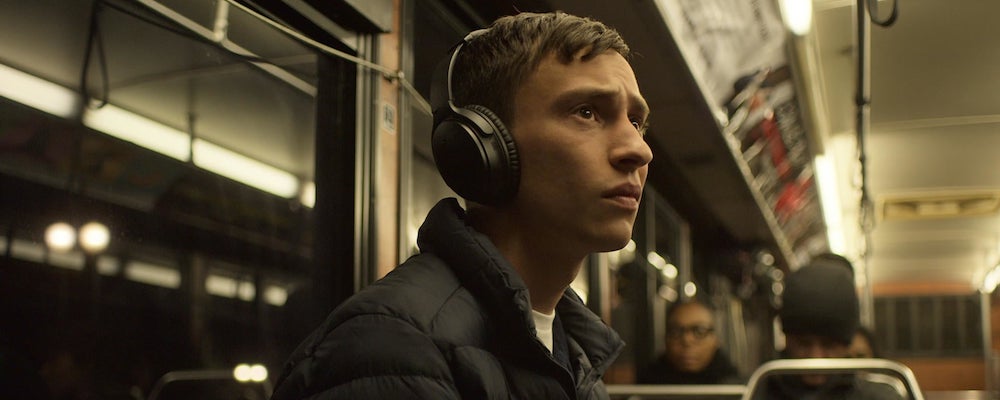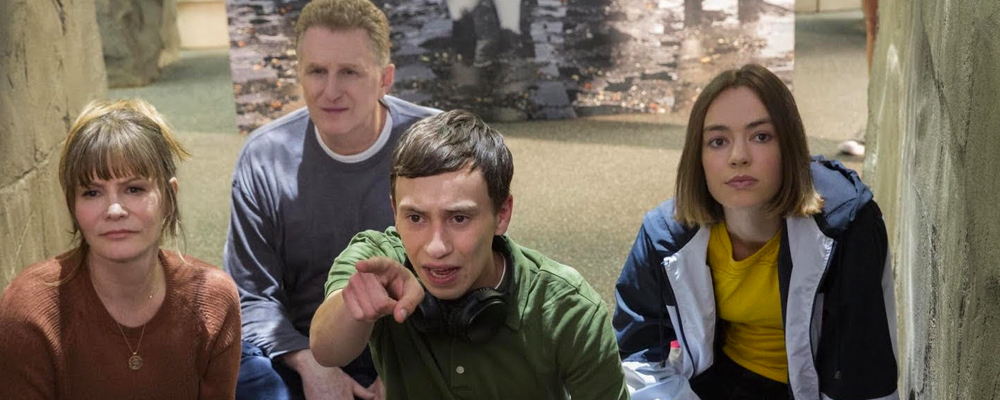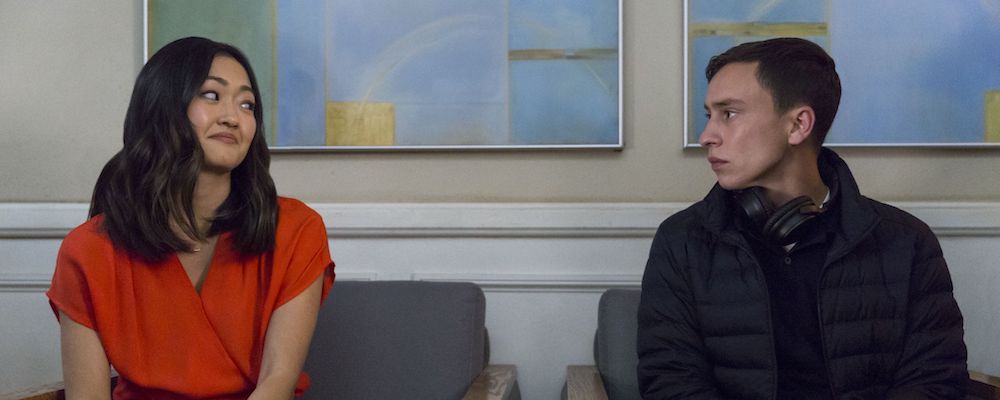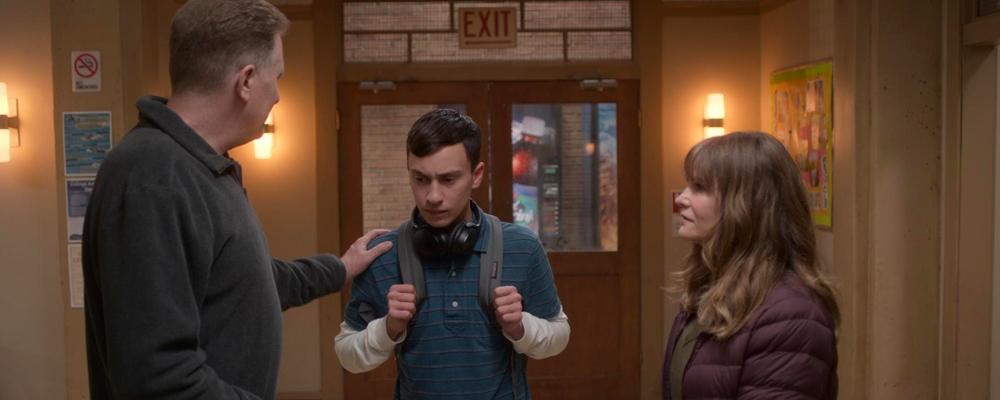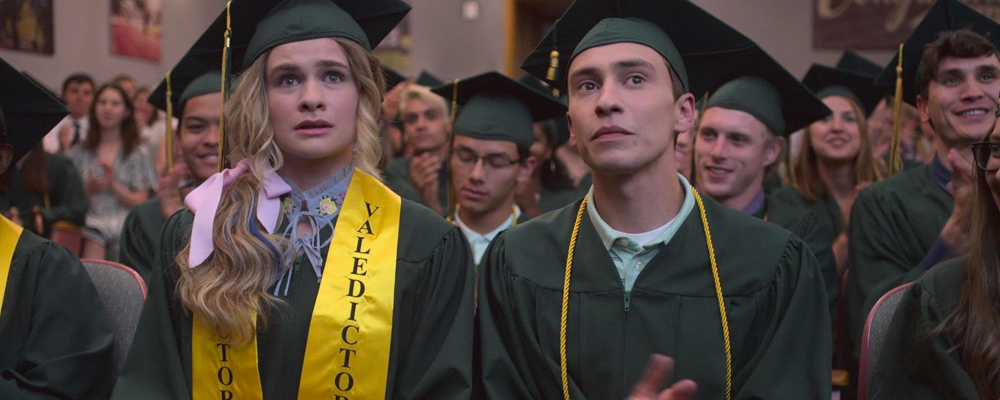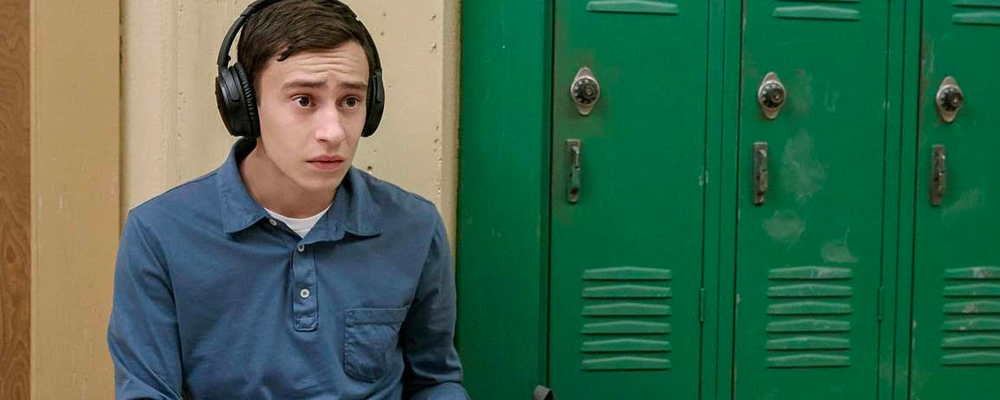‘Atypical’ Creator and Cast Open up About Autism and the Show’s Emotional Second Season
Alci Rengifo
“Atypical” is back on Netflix for a second season of endearing drama. One of the few shows in the mainstream to incorporate the theme of autism in a creative, mature fashion, it has captured an audience with its story of Sam (Keir Gilchrist). High schooler Sam has autism but fights for his own independence from home. In this second season there is more of an ensemble feel as Sam’s parents, Elsa (Jennifer Jason Leigh) and Doug (Michael Rapaport), deal with the fallout of Elsa’s infidelity in the last season. Sam’s own sister Casey (Brigette Lundy-Paine) is now attending a prestigious private school but feels distant from her mother following the affair. As Sam faces junior year with little idea of what to do after high school, he continues to grapple with reading social cues and his own ticks. He’s also looking for a new therapist after having an inappropriate crush on his last one, Julia (Amy Okuda). It is yet another season of personal highs and lows, tough decisions and much self-discovery.
Gilchrist, Lundy-Paine, Okuda and creator Robia Rashid recently spoke with Entertainment Voice on this new season of “Atypical.”
“All of a sudden Sam is on his own, and Casey’s on her own,” said Keir Gilchrist about where his character and Lundy-Paine’s find themselves. “But actually because of what’s going on at home, in terms of the affair and what transpired after the first season, there’s a lot of tension which strains their relationship. I think this is very common with kids when this happens, siblings often have to handle a lot.”
“I’ve learned so much in so many different areas of my life,” said the young actor on the experience of making the show itself. “One thing I’ve learned is that I’m able to do things I didn’t think I could. I’ve never been on a series before, it’s pretty incredible. I’m pretty proud of myself, which is cool, that I accomplished it.” Gilchrist is also taking broader lessons about the world from playing Sam. “I’ve also learned not to jump to conclusions with people, to take a step back and realize that everybody’s different, everyone’s atypical. I hope other people can take that away too.”
“More than any other role I’ve played, the level of energy I need to have is incredible. Sam’s brain moves faster than mine does, even though my brain is similar in some ways and there’s a part that’s similar to Sam, I’m having to work twice as hard to keep up with him. And so just the energy that that requires, and the huge focus, have been a challenge for me,” said Gilchrist. “At the end of a five day week I’m like, ‘I can’t keep up with Sam, he’s just too smart, too quick witted.”
“One’s identity shifts wherever you are,” said Brigette Lundy-Paine about her own character now finding herself in a new school, away from Sam. “In a way she becomes stronger because she’s challenged but in this insane environment. She’s like a swan in the jungle. I think it only strengthens her identity.” Like Gilchrist, Lundy-Paine has found herself experiencing self-reflection via her character. “She’s helped understand how to use my voice in a way, because Casey says whatever she wants and understands herself in a way I really admire. I walk away every time we shoot thinking, ‘I want to be more like Casey.’”
Amy Okuda reflected on the change in the relationship between her character Julia and Sam, which last season turned into an unwise crush on Sam’s part. “The relationship is definitely different,” said Okuda. “I hope that if we do go on with the show we will see it evolve into something better than it was before.” When we last saw Julia at the end of season one she was pregnant, but had separated from her fiancé. “So she has to make some pretty big decisions, which is hard when it seems like your life is chaos. She has to decide to what do with her pregnancy, just a lot of things she needs to decide on.” But for Okuda the message of the show is quite clear. “Diversity really matters. I feel like the support from the autism community has been so amazing. It’s a testament to how when people are not seen or heard, and then they see something like ‘Atypical’ it’s really special to them to be a part of something like that. I never thought an acting job would make me feel something so totally emotional outside of the job itself.”
“This season was really fun. Last season was fun but super overwhelming and exhausting,” said creator and producer Robia Rashid. “We felt like we had gotten a lot of it right, and the things we didn’t get right were very clear. But the characters are so established that story breaking was easy. My real focus in season two was in involving the autism community even more.” Rashid shared how more autistic actors were hired and even animators to put together a sequence for an episode. “We hired a writer to be an advisor.He came to set and read the scripts and watched the cuts. So we really got to focus more.” Diversity was also a key focus for Rashid and the team. “We have seven out of ten of our episodes directed by women this year, nine out of ten are directed by either women or people of color. We have lots of women on set, a lot as our department heads and writers. So it’s become a really kind of exciting and diverse set.”
“There is something about this show,” continued Rashid, “there’s something universal about the search for love, the search for acceptance, being a parent, being a child. These themes are in everyone’s life.”
“Atypical” season two premieres Sept. 7 on Netflix.

